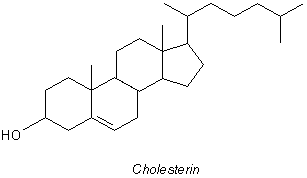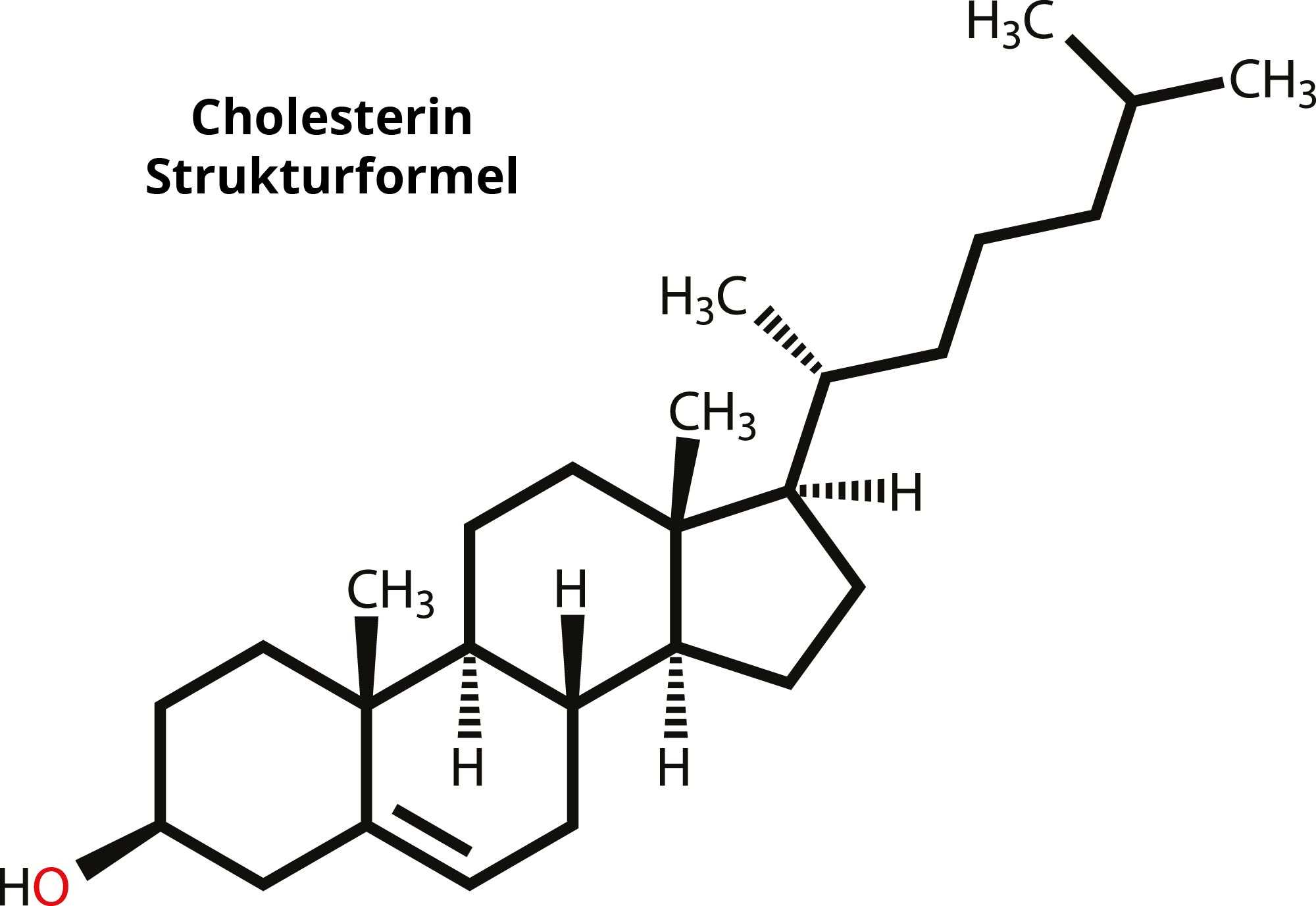Cholesterin
What is cholesterol?

- Elevated cholesterol levels are one of the risk factors for heart disease, stroke, and peripheral artery disease.The mechanism involving cholesterol in all three diseases is the same; plaque buildup within arteries decreases blood flow affecting the function of the cells and organs that these blood vessels supply.
- Cholestifin® drops is perfectly balanced and efficiently composed cholesterol-reducing product, which reduces the levels of harmful cholesterol and increases “good” cholesterol.
- Cholesterol levels should be measured at least once every five years in everyone over age 20. The screening test that is usually performed is a blood test called a lipid profile. Experts recommend.
- Cholesterol Health Check. High cholesterol, also known as hypercholesterolemia, is a major risk factor for heart disease and stroke. Abnormal levels of LDL cholesterol or HDL cholesterol are.
Cholesterin definition at Dictionary.com, a free online dictionary with pronunciation, synonyms and translation.
Cholesterol is a waxy, fat-like substance that's found in all the cells in your body. Your liver makes cholesterol, and it is also in some foods, such as meat and dairy products. Your body needs some cholesterol to work properly. But having too much cholesterol in your blood raises your risk of coronary artery disease.
What are LDL and HDL?
LDL and HDL are two types of lipoproteins. They are a combination of fat (lipid) and protein. The lipids need to be attached to the proteins so they can move through the blood. LDL and HDL have different purposes:
- LDL stands for low-density lipoproteins. It is sometimes called the 'bad' cholesterol because a high LDL level leads to a buildup of cholesterol in your arteries.
- HDL stands for high-density lipoproteins. It is sometimes called the 'good' cholesterol because it carries cholesterol from other parts of your body back to your liver. Your liver then removes the cholesterol from your body.

How can a high LDL level raise my risk of coronary artery disease and other diseases?
If you have a high LDL level, this means that you have too much LDL cholesterol in your blood. This extra LDL, along with other substances, forms plaque. The plaque builds up in your arteries; this is a condition called atherosclerosis.
Coronary artery disease happens when the plaque buildup is in the arteries of your heart. It causes the arteries to become hardened and narrowed, which slows down or blocks the blood flow to your heart. Since your blood carries oxygen to your heart, this means that your heart may not be able to get enough oxygen. This can cause angina (chest pain), or if the blood flow is completely blocked, a heart attack.

How do I know what my LDL level is?
A blood test can measure your cholesterol levels, including LDL. When and how often you should get this test depends on your age, risk factors, and family history. The general recommendations are:
For people who are age 19 or younger:
- The first test should be between ages 9 to 11
- Children should have the test again every 5 years
- Some children may have this test starting at age 2 if there is a family history of high blood cholesterol, heart attack, or stroke
For people who are age 20 or older:
- Younger adults should have the test every 5 years
- Men ages 45 to 65 and women ages 55 to 65 should have it every 1 to 2 years
What can affect my LDL level?

Things that can affect your LDL level include
- Diet. Saturated fat and cholesterol in the food you eat make your blood cholesterol level rise
- Weight. Being overweight tends to raise your LDL level, lower your HDL level, and increase your total cholesterol level
- Physical Activity. A lack of physical activity can lead to weight gain, which can raise your LDL level
- Smoking.Cigarette smoking lowers your HDL cholesterol. Since HDL helps to remove LDL from your arteries, if you have less HDL, that can contribute to you having a higher LDL level.
- Age and Sex. As women and men get older, their cholesterol levels rise. Before the age of menopause, women have lower total cholesterol levels than men of the same age. After the age of menopause, women's LDL levels tend to rise.
- Genetics. Your genes partly determine how much cholesterol your body makes. High cholesterol can run in families. For example, familial hypercholesterolemia (FH) is an inherited form of high blood cholesterol.
- Medicines. Certain medicines, including steroids, some blood pressure medicines, and HIV/AIDS medicines, can raise your LDL level.
- Other medical conditions. Diseases such as chronic kidney disease, diabetes, and HIV/AIDS can cause a higher LDL level.
- Race. Certain races may have an increased risk of high blood cholesterol. For example, African Americans typically have higher HDL and LDL cholesterol levels than whites.
What should my LDL level be?
With LDL cholesterol, lower numbers are better, because a high LDL level can raise your risk for coronary artery disease and related problems:
| LDL (Bad) Cholesterol Level | LDL Cholesterol Category |
|---|---|
| Less than 100mg/dL | Optimal |
| 100-129mg/dL | Near optimal/above optimal |
| 130-159 mg/dL | Borderline high |
| 160-189 mg/dL | High |
| 190 mg/dL and above | Very High |
How can I lower my LDL level?
There are two main ways to lower your LDL cholesterol:
- Therapeutic lifestyle changes (TLC). TLC includes three parts:
- Heart-healthy eating. A heart-healthy eating plan limits the amount of saturated and trans fats that you eat. Examples of eating plans that can lower your cholesterol include the Therapeutic Lifestyle Changes diet and the DASH eating plan.
- Weight Management. If you are overweight, losing weight can help lower your LDL cholesterol.
- Physical Activity. Everyone should get regular physical activity (30 minutes on most, if not all, days).
- Drug Treatment. If lifestyle changes alone do not lower your cholesterol enough, you may also need to take medicines. There are several types of cholesterol-lowering drugs available, including statins. The medicines work in different ways and can have different side effects. Talk to your health care provider about which one is right for you. While you are taking medicines to lower your cholesterol, you still should continue with the lifestyle changes.
Some people with familial hypercholesterolemia (FH) may receive a treatment called lipoprotein apheresis. This treatment uses a filtering machine to remove LDL cholesterol from the blood. Then the machine returns the rest of the blood back to the person.
Cholesterin
NIH: National Heart, Lung, and Blood Institute
- Bile acid sequestrants for cholesterol (Medical Encyclopedia) Also in Spanish
- Cholesterol - drug treatment (Medical Encyclopedia) Also in Spanish
- Cholesterol - what to ask your doctor (Medical Encyclopedia) Also in Spanish
- Cholesterol Good and Bad (National Library of Medicine) Also in Spanish
- Cholesterol Levels (National Library of Medicine) Also in Spanish
- Cholesterol Medicines: MedlinePlus Health Topic (National Library of Medicine) Also in Spanish
- Cholesterol testing and results (Medical Encyclopedia) Also in Spanish
- Familial hypercholesterolemia (Medical Encyclopedia) Also in Spanish
- Niacin for cholesterol (Medical Encyclopedia) Also in Spanish
- Statins: MedlinePlus Health Topic (National Library of Medicine) Also in Spanish
- ClinicalTrials.gov: LDL Cholesterol (National Institutes of Health)
Journal Articles References and abstracts from MEDLINE/PubMed (National Library of Medicine)
Cholesterol Levels
- Article: Association of small, dense LDL-cholesterol concentration and lipoprotein particle characteristics with...
- Article: Cardiovascular Outcomes and Proprotein Convertase Subtilisin/Kexin Type 9 Inhibitors: Current Data...
- Article: PCSK9 monoclonal antibodies for the primary and secondary prevention of cardiovascular...
- LDL: The 'Bad' Cholesterol -- see more articles